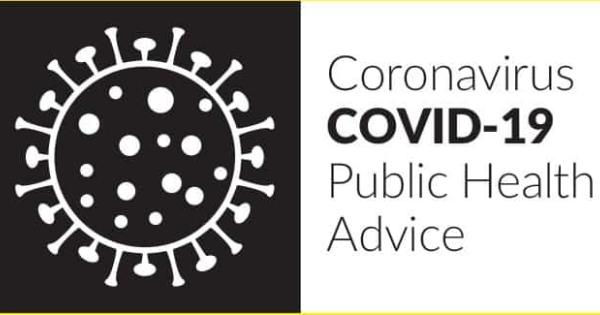Protect yourself from Coronavirus
- Moville Community College
- Mar 3, 2020
- 2 min read

Do
Cover your mouth and nose with a tissue or your sleeve when you cough and sneeze.
Put used tissues into a bin and wash your hands.
Clean and disinfect frequently touched objects and surfaces.
Don't
Do not touch your eyes, nose or mouth if your hands are not clean.
Wash your hands
after coughing or sneezing
after toilet use
before eating
before and after preparing food
if you are in contact with a sick person, especially those with respiratory symptoms
if your hands are dirty
if you have handled animals or animal waste
Read a step-by-step guide on how to properly wash your hands and avoid infection
Face masks
Don't use a face mask if you feel well and do not have symptoms - there’s no evidence that using masks is of any benefit if you are not sick.
Use a face mask if you:
have or may have coronavirus
are in close contact with someone who has or may have coronavirus
are a healthcare worker in close contact with people who have or may have coronavirus
Children and coronavirus
Encourage your child to wash their hands regularly and properly.
Read more advice on how to prevent your child from catching or spreading viral infections.
Treatment for coronavirus
There is no specific treatment for coronavirus. But many of the symptoms of the virus can be treated.
If you get the virus, your healthcare professional will advise treatment based on your symptoms.
Antibiotics do not work against coronavirus or any viruses. They only work against bacterial infections.
Vaccine
There is currently no vaccine to treat or protect against coronavirus.
The flu vaccine does not protect against coronavirus.
At-risk groups and coronavirus
We do not know for sure which groups are most at risk of complications if they catch coronavirus.
But it is likely you are more at risk if you catch coronavirus and:
are 65 years of age and over
have a long-term medical condition – for example, heart disease, lung disease, diabetes or liver disease
You should follow the advice on how to protect yourself from coronavirus and other infections like flu.
Pets and coronavirus
There is no evidence that pets such as cats and dogs can catch or spread coronavirus.
Avoid all non-essential travel to China
Follow the up-to-date travel information from the Department of Foreign Affairs for travel advice on countries and regions affected by coronavirus.
The Department of Foreign Affairs has advised people to avoid all non-essential travel to China.
If you have to travel to China:
do not visit animal or bird markets in China
do not go to places in China where live or dead animals are handled
do not visit anyone in China who is ill with cold or flu-like symptoms such as sneezing or coughing
do not touch animals and their poo (droppings) in China
Wash your hands properly and regularly with soap and water.
More information
Department of Foreign Affairs – updated travel information and advice
The Health Protection Surveillance Centre – information for health professionals


Comments